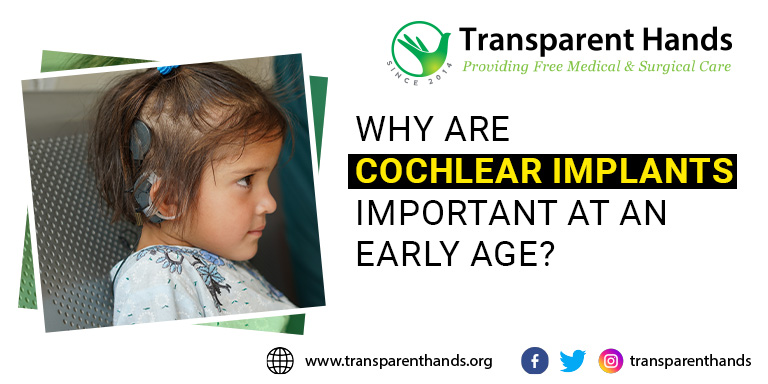Why Are Cochlear Implants Important at an Early Age?

Implants in the cochlea allow people who are deaf or have profound hearing loss to perceive sound and significantly improve their capacity to communicate in a meaningful way, making them an important medical advancement. Unlike hearing aids, which amplify sound, cochlear implants bypass damaged parts of the inner ear and directly stimulate the auditory nerve, which sends signals to the brain that are interpreted as sound.
Cochlear implantation can benefit people of all ages, including children born deaf or who lose their hearing at a young age, as well as adults with gradual or sudden hearing loss. They can help people understand speech, communicate, and participate in social and professional activities. Although cochlear devices do not restore hearing to normal levels, they can significantly enhance a person’s ability to hear and comprehend speech in noisy environments. Additionally, research has demonstrated that early implantation can result in improved outcomes for children’s speech and language development.
Benefits of Cochlear Implants at an Early Age
1. Cochlear implant devices can have a positive impact on a child’s overall quality of life by enhancing their capacity to communicate, engage in social interactions with others, and take part in activities that require hearing. They might also face fewer of the social and emotional difficulties that come along with hearing loss. Early cochlear implantation is crucial for maximizing the benefits of this technology, especially for children.
2. Children who receive cochlear implantation before the age of 2 have a greater advantage in terms of language and speech development than those who get them later. This is because the brain’s auditory pathways are still forming during early ages, and these devices can stimulate these pathways, facilitating the growth of neural connections that are crucial to language acquisition at a later age.
3. Early cochlear implantation improves speech and language development in children. Early implantation establishes auditory pathways in the brain, helping children understand and produce speech.
4. Cochlear implants can help children communicate better, improving their social skills and quality of life. They can understand directions, build basic vocabulary, participate in conversations, and socialize better to make friends.
5. Children with cochlear implantation may achieve better results in the classroom. They will have a more fruitful learning experience, more active participation in class discussions, and tend to have better academic performance.
6. Children who receive cochlear devices are able to improve their ability to communicate with their caregivers, teachers, and peers, which in turn helps them become more independent. They are able to take part in activities that rely on their hearing, such as playing sports, singing, or playing musical instruments.
7. Cochlear implants can have a positive impact on a child’s cognitive development. Children with cochlear devices have been shown to have better auditory memory, processing speed, and attention skills compared to those who rely on sign language alone.
Endnote
An early cochlear implant can have a big impact on a child’s ability to verbally communicate as well as their cognitive and social development. This can also have an effect on the child’s overall development. Children can have access to sound during a crucial period of their development, which enables them to learn and develop their auditory skills in a manner that is very similar to that of their hearing peers. Children who are candidates for cochlear implants may have the opportunity to live lives that are more independent and fulfilling, and they may also realize their full potential.










Leave Your Comments